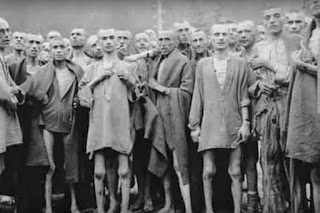Barbara Marton Farkas never forgot the moment she realized the Soviet Army was closing in on Weisswasser, the subcamp of the Gross-Rosen concentration camp where she was imprisoned.

Barbara Marton Farkas never forgot the moment she realized the Soviet Army was closing in on Weisswasser, the subcamp of the Gross-Rosen concentration camp where she was imprisoned. "During the night we start to hear all kind of noises: airplane and shooting, and they said that the Russia are starting to, to get closer and closer.” In February 1945, Soviet forces liberated Gross-Rosen, but they found only a few prisoners still there. As the Soviets approached, Barbara and tens of thousands of other prisoners were evacuated from the camp and many of its subcamps. “They evacuate the barracks, and they put us on feet to walk.” Despite being so close to liberation, it would be months before Barbara would finally be free. Barbara, born to a Jewish family in 1920, had a happy childhood in Romania. Her parents owned a local grocery store, and she thrived in school. However, in 1940, her town was annexed by Hungary and antisemitic policies prevented Barbara from attendin...